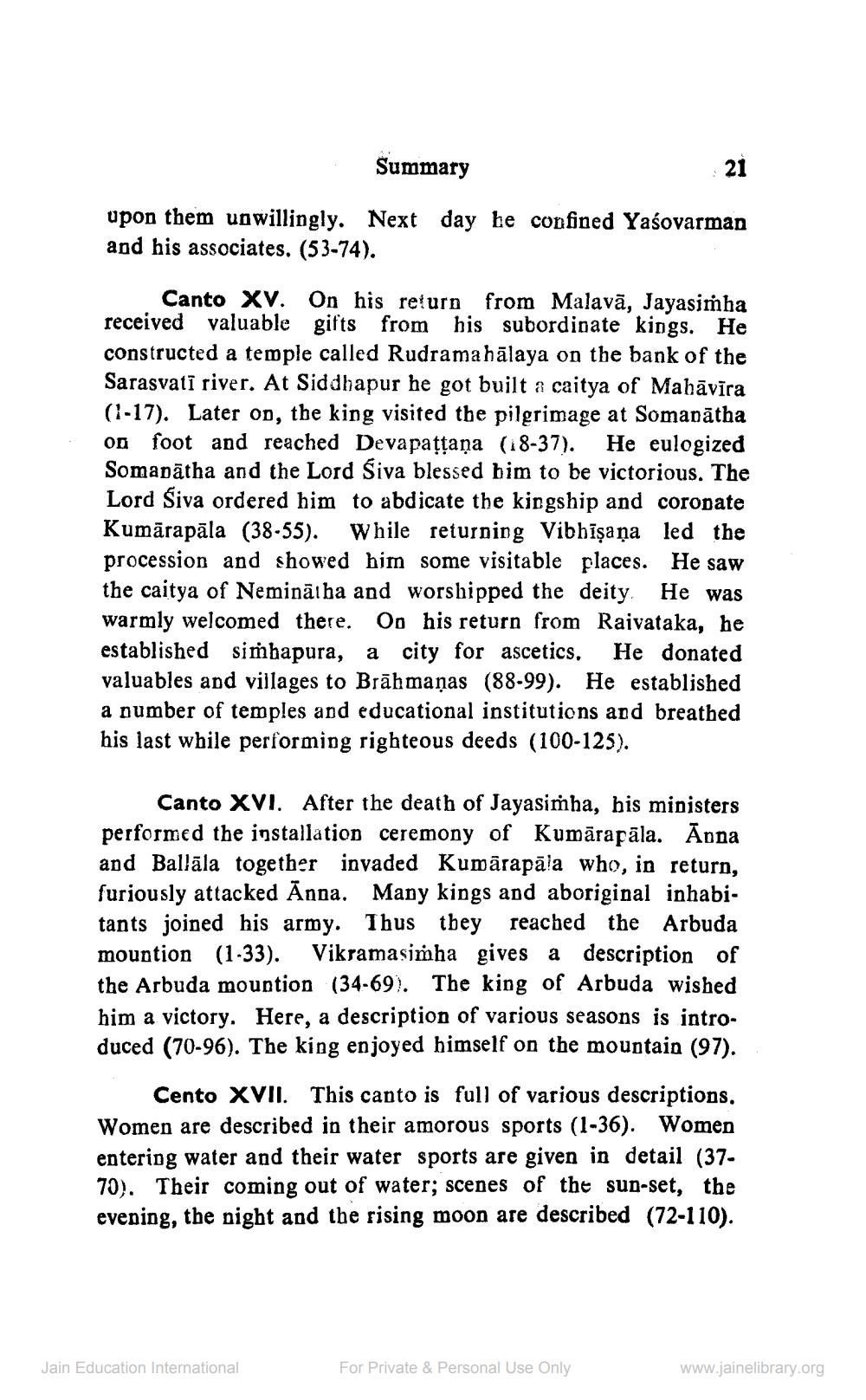________________
Summary
21
upon them unwillingly. Next day he confined Yasovarman and his associates. (53-74).
Canto XV. On his return from Malavā, Jayasimha received valuable gifts from his subordinate kings.
ubordinate kings. He constructed a temple called Rudramahālaya on the bank of the Sarasvati river. At Siddhapur he got built a caitya of Mahāvīra (1-17). Later on, the king visited the pilgrimage at Somapātha on foot and reached Devapațțaņa (18-37). He eulogized Somapātha and the Lord Siva blessed him to be victorious. The Lord Siva ordered him to abdicate the kingship and coropate Kumārapāla (38-55). While returning Vibhīşaņa led the procession and showed him some visitable places. He saw the caitya of Nemināıha and worshipped the deity. He was warmly welcomed there. Oo his return from Raivataka, he established simhapura, a city for ascetics. He donated valuables and villages to Brāhmaṇas (88-99). He established a number of temples and educational institutions and breathed his last while performing righteous deeds (100-125).
Canto XVI. After the death of Jayasimha, his ministers performed the installation ceremony of Kumārafāla. Anna and Ballāla together invaded Kumārapāla who, in return, furiously attacked Anna. Many kings and aboriginal inhabitants joined his army. Thus they reached the Arbuda mountion (1-33). Vikramasimha gives a description of the Arbuda mountion (34-69). The king of Arbuda wished him a victory. Here, a description of various seasons is introduced (70-96). The king enjoyed himself on the mountain (97).
Cento XVII. This canto is full of various descriptions. Women are described in their amorous sports (1-36). Women entering water and their water sports are given in detail (37. 70). Their coming out of water; scenes of the sun-set, the evening, the night and the rising moon are described (72-110).
Jain Education International
For Private & Personal Use Only
www.jainelibrary.org




